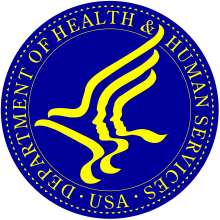Scientific integrity
Scientific integrity deals with "best practices" or rules of professional practice of researchers. It stems from an OECD report of 2007,[1] and is set in the context of the replication crisis and the fight against scientific misconduct.
Initiatives
In 2007 the OECD published a report on best practices for promoting scientific integrity and preventing misconduct in science (Global Science Forum).
Main international texts in this field:
- European Charter for Researchers (2005)
- the Singapore statement on research integrity (2010)[2]
- European Code of Conduct for Research Integrity of All European Academies (ALLEA) and the European Science Foundation (ESF) (2011 revised in 2017[3]).
In Europe
The European Code of Conduct for Research Integrity, published in 2011 and revised in 2017, develops the concept of scientific integrity along four main lines :
- Reliability: concerns the quality and reproducibility of research.
- Honesty: concerns the transparency and objectivity of research.
- Respect: for the human, cultural, and ecological environment of research.
- Accountability: concerns the implications of publishing the research.
In the USA
US Department of Health and Human Services

In a statement made by the US Department of Health and Human Services (HHS), they adopted the definition of Scientific Integrity as stated below.[4] This policy is currently being reviewed and will be officially published in early 2024.[5]
" Scientific integrity is the adherence to professional practices, ethical behavior, and the principles of honesty and objectivity when conducting, managing, using the results of, and communicating about science and scientific activities. Inclusivity, transparency, and protection from inappropriate influence are hallmarks of scientific integrity.”-HHS
To promote a culture of scientific integrity at HHS, they have outlined their policy in seven specific areas:[4]
- Protecting Scientific Processes
- Ensuring the Free Flow of Scientific Information
- Supporting Policymaking Processes
- Ensuring Accountability
- Protecting Scientists
- Professional Development for Government Scientists
- Federal Advisory Committees
As a result of these areas, open science practices can be promoted to protect against bias, plagiarism, and data fabrication, falsification as well as inappropriate influencing, political interference, and censorship.[6]
National Institute of Health

The National Institute of Health (NIH) is a branch of the HHS. They act as the nation's medical research agency which focuses on making important discoveries that improve health and save lives.[7] The mission of NIH is to provide a fundamental understanding of the nature and behavior of living systems and applying that understanding to improve health, extend life, and reduce illness and disability.[8] The NIH fosters the definition of Scientific Integrity from the HHS Scientific Integrity Policy draft to ensure their scientific findings are objective, creditable, transparent, and readily available to the public. All NIH staff are expected to:
- Foster an organizational Culture of Scientific Integrity
- Protect the Integrity of the Research Process
- Communicate Science with Integrity
- Safeguard Scientific Integrity
See also
References
- ^ "Best Practices for Ensuring Scientific Integrity and Preventing Misconduct" (PDF). Organisation for Economic Co-operation and Development (OECD). 2007.
- ^ "Singapore Statement on Research Integrity" (PDF). 2010.
- ^ "ALLEA publishes revised edition of The European Code of Conduct for Research Integrity". All European Academies (ALLEA). 2017.
- ^ a b https://www.hhs.gov/sites/default/files/draft-hhs-scientific-integrity-policy.pdf
- ^ Evaluation (ASPE), Assistant Secretary for Planning and (2023-06-27). "HHS Scientific Integrity". HHS.gov. Retrieved 2023-10-10.
- ^ "Scientific Integrity and Research Misconduct". www.usda.gov. Retrieved 2023-10-10.
- ^ "Who We Are". National Institutes of Health (NIH). Retrieved 2023-10-10.
- ^ https://osp.od.nih.gov/wp-content/uploads/2023/09/SI_Compendium-2022Update.pdf
